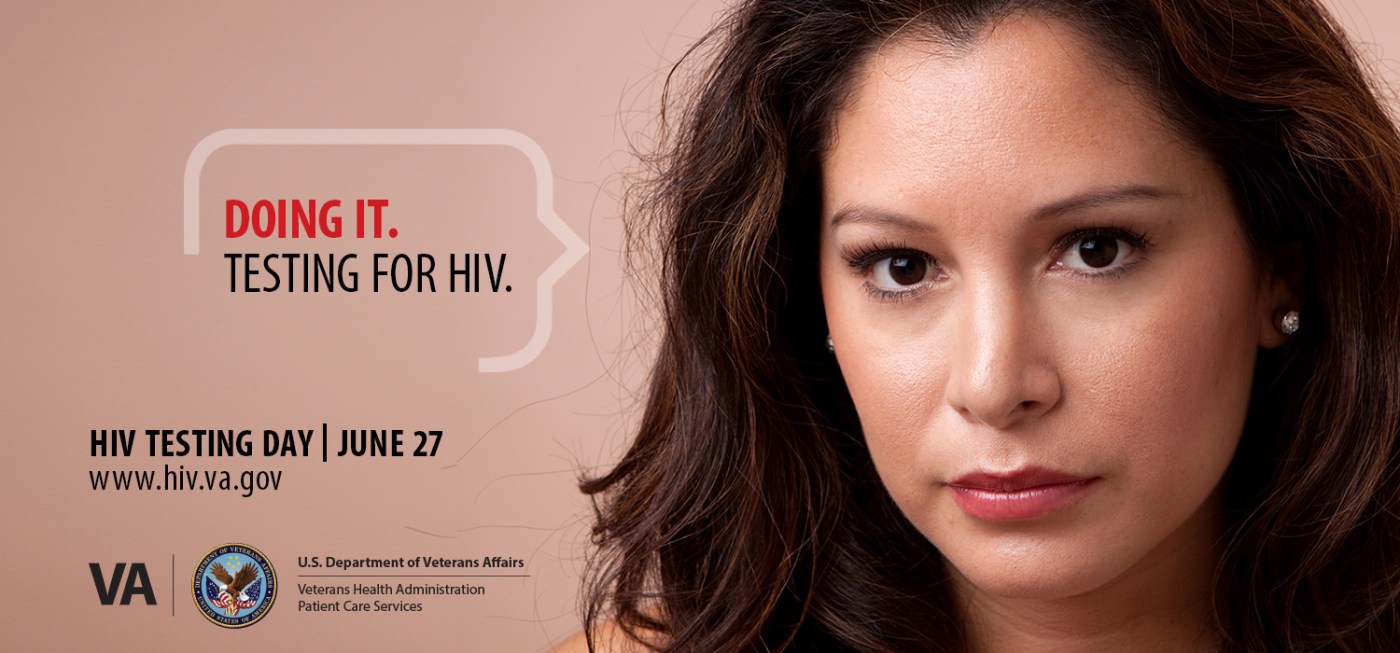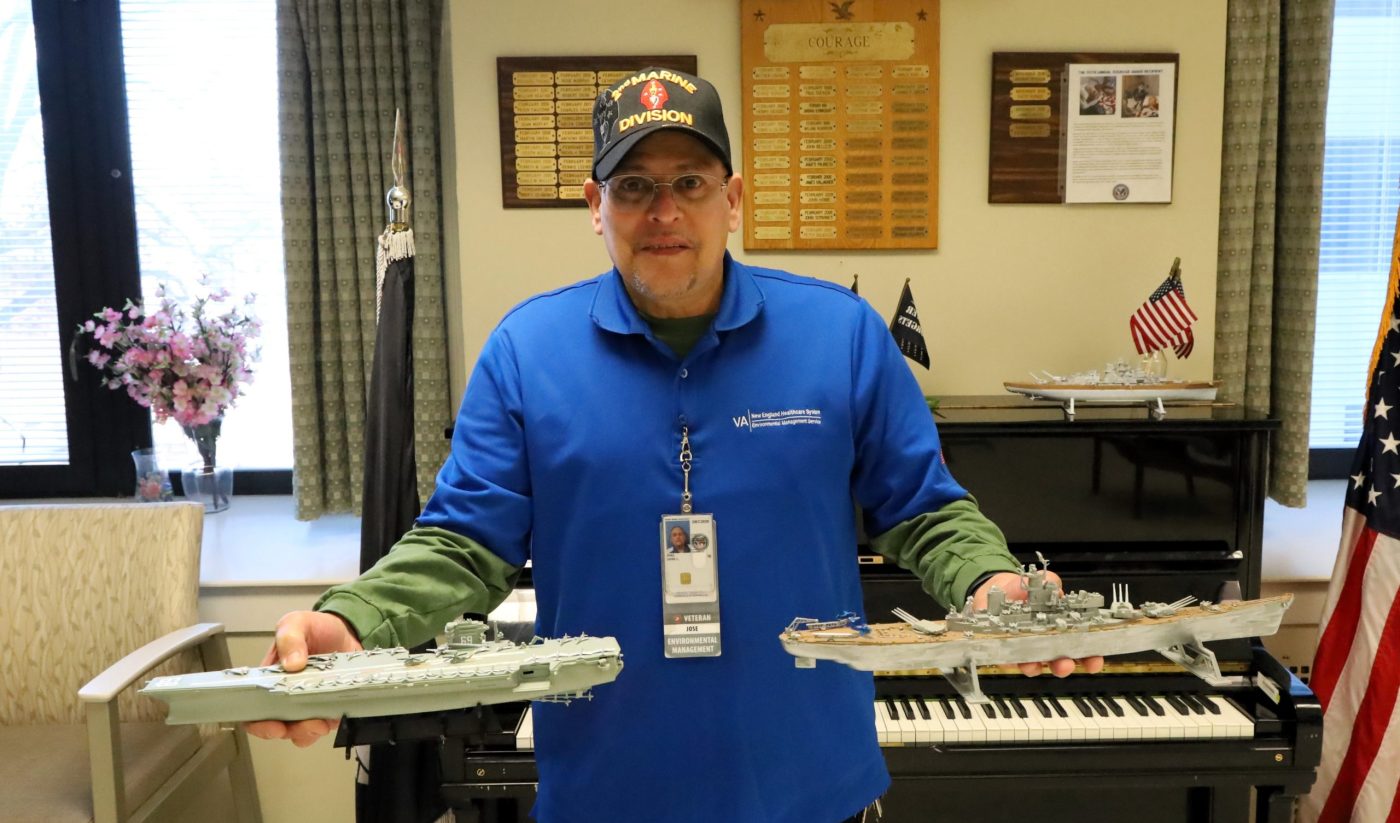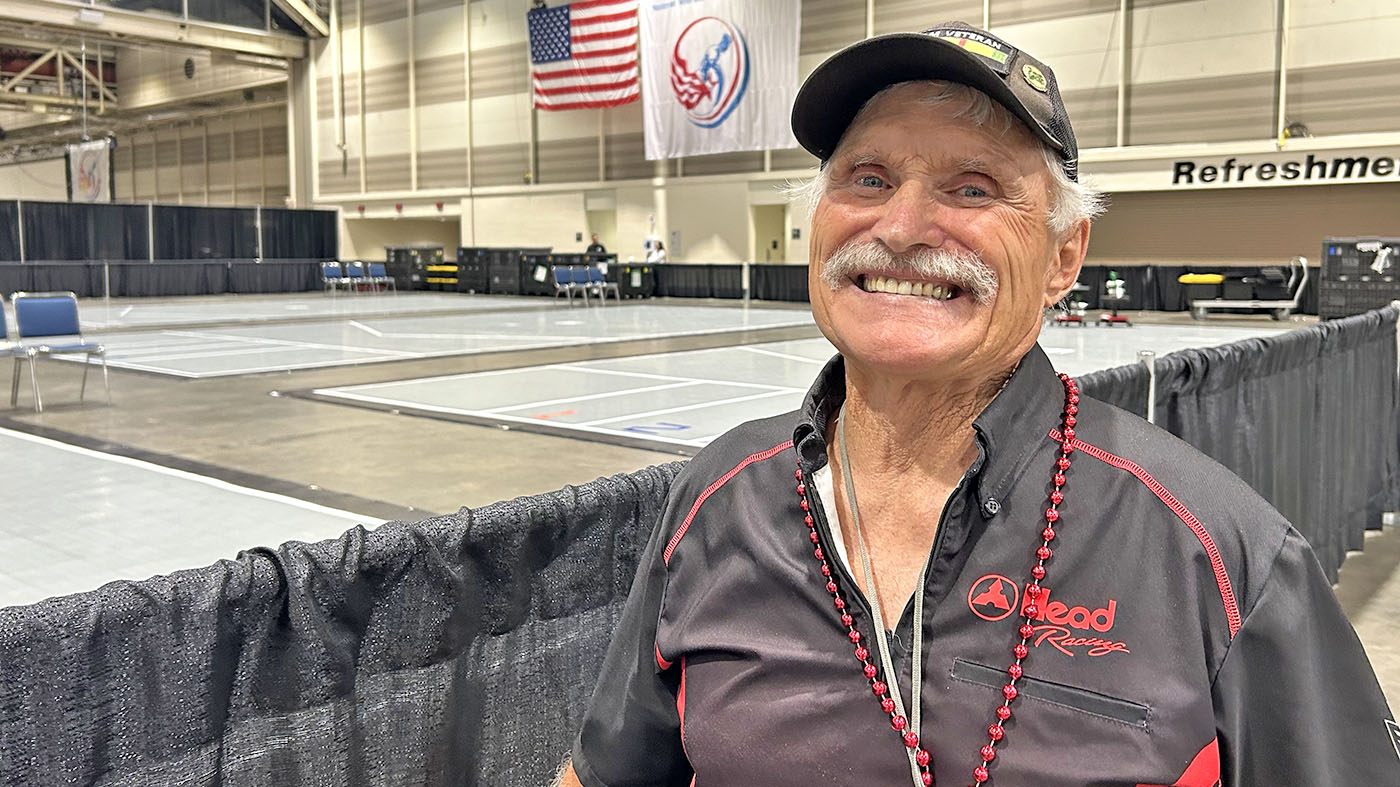The Marine Corps Veteran interviewed for this article is also a devoted mother and successful nurse.
The early 1980s were a different time for a person who was HIV positive. It was a time when stigma ran rampant and a positive diagnosis could equate to the ending of friendships, family relationships, marriages, the loss of a career, and unimaginable pain and fear.
Almost 33 years ago, and before she turned to VA for care, it was the fear of these consequences that forced U.S. Marine Corps Veteran Susan (whose name has been changed to protect her identify) to drive hundreds of miles to get treatment. If the distance in miles wasn’t enough, Susan went to even greater lengths because of her gender.
Treatment for women was lacking, and in some places, nonexistant, so she was forced to crossdress and present to the clinic as a “transvestite” in order to receive HIV care. That was before she found a place that would treat women, a place that provided hope and took away feelings of fear and shame. Susan found VA.
Susan, now 69-years-old, is a devoted mother, successful nurse, and part-time teacher. She was diagnosed with HIV in 1982. Susan contracted HIV following a postpartum blood transfusion. Doctors did not recognize her symptoms, suggesting that she might have diabetes or arthritis. Almost as an afterthought, one doctor tested her for HIV while mentioning “women don’t get these kinds of things.” Sure enough, Susan tested positive.
Less than six months to live
Susan heard from many that no one treated women with HIV, and that she would likely have less than six months to live. Determined to find treatment and out-live her prognosis, Susan found a community clinic through a family member. But there was one big problem: the clinic only treated men.
The clinic was several states away, which meant driving hundreds of miles. She arrived at the clinic and presented as a “transvesite” in order to receive care, but the nurse at the clinic was not fooled. Susan told the nurse, “I won’t tell if you won’t.” She started receiving treatment soon after.
Although it was nothing short of exhausting to drive hours away for treament, Susan was well aware of the incredible stigma, discrimination, and violence against women with HIV. When it was discovered that a school teacher in a nearby town had HIV, she was fired and her house was burned to the ground by local citizens. Fearing similar treatment, Susan continued to drive long distances, pretending to be a “transvestite,” in order to receive care. She hid her identity and her diagnosis from her community.
Accepting and open approach to treatment at VA
Nearly 20 years ago, Susan enrolled in and began receiving HIV care through VA. Based on her experience, she feels that the “cutting edge technology” and “accepting and open approach” to patients at VA is “amazing in comparison to the rest of the world.”
Although Susan keeps her diagnosis a secret outside of close family members, to this day, she comes to VA knowing she will be welcomed into a stigma-free environment.
Encouraging Veterans to get tested and treated for HIV
When asked if she has any advice for fellow Veterans who have either been diagnosed with HIV or are thinking about getting tested, Susan is unwaivering in her response. She encourages all Veterans to get tested and emphasizes that there are treatment options, and having HIV does not mean that you are going to die from it.
For Veterans who are diagnosed with HIV, she explained the importance of recognizing their diagnosis, and building a life around taking care of themselves. “Recognize [HIV] as part of your life, but don’t let it control your life.”
Monday, June 27 is National HIV Testing Day. VA encourages all Veterans to get tested for HIV, regardless of their “at risk” status. As Susan’s story shows, with treatment, most people with HIV can lead long and healthy lives.
Getting diagnosed and treated early can keep you healthier longer. Learn more at www.hiv.va.gov.
About the Author: Prachi Patel is a Public Affairs Officer with the Veterans Health Administration.
Topics in this story
More Stories
One strategy credited for the improvement is a focus on building trust and stronger patient-provider relationships.
Army and Marine Corps Veteran started making models after being hospitalized at Connecticut VA.
Veteran Hank Ebert is a bit of a superstar in the National Veterans Wheelchair Games. He has been attending since 1993.







Although VA hospitals care for veterans with respect and professionalism. There is a lack of treating vets with chronic conditions. Procedures and long wait times are well known. Some vets have passed because of this neglect. I’m currently experience this problem. I need special spine surgery which the VA at Northport, Long Island. My condition has become very painful to the point of limit mobility. Not except able. No more delays.